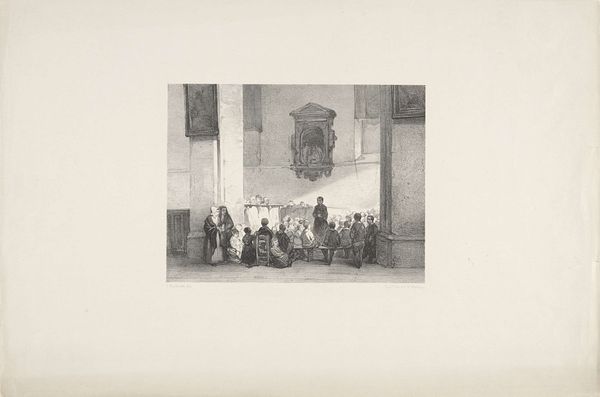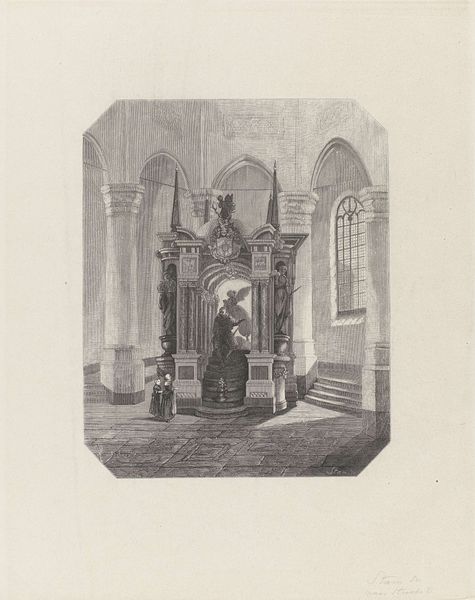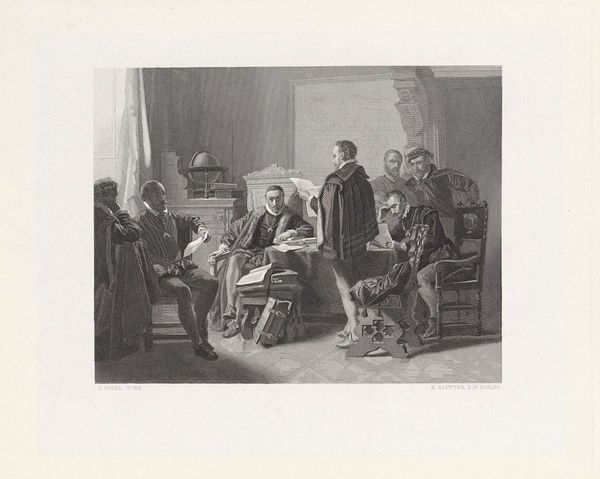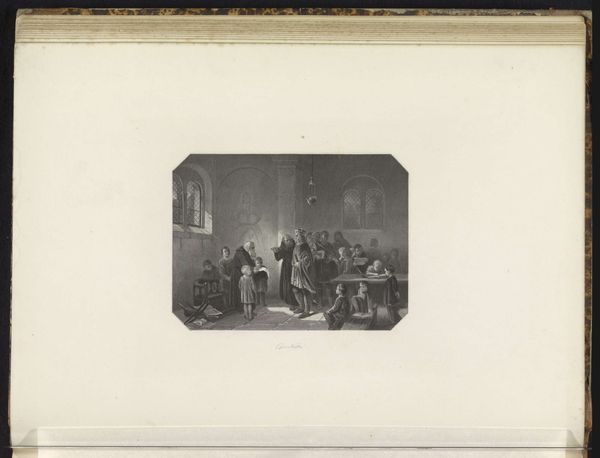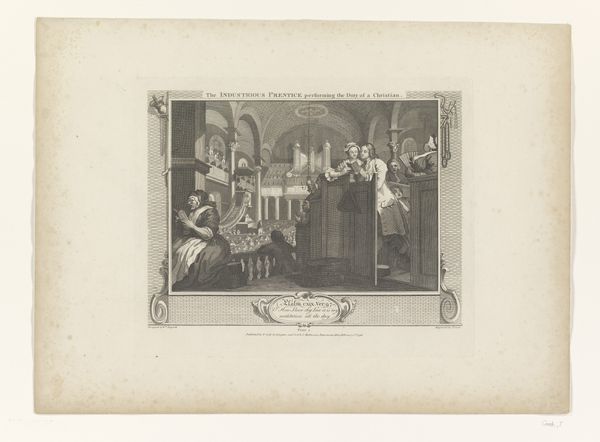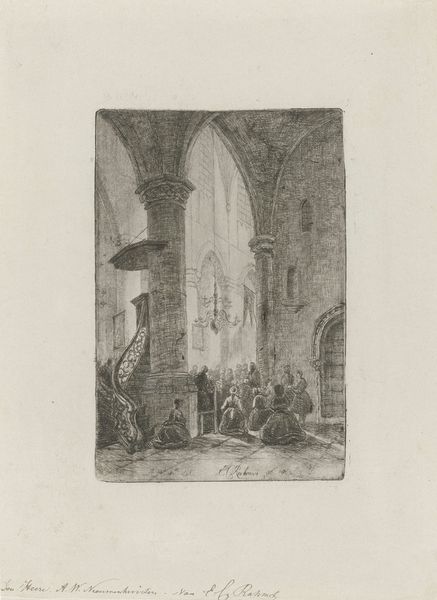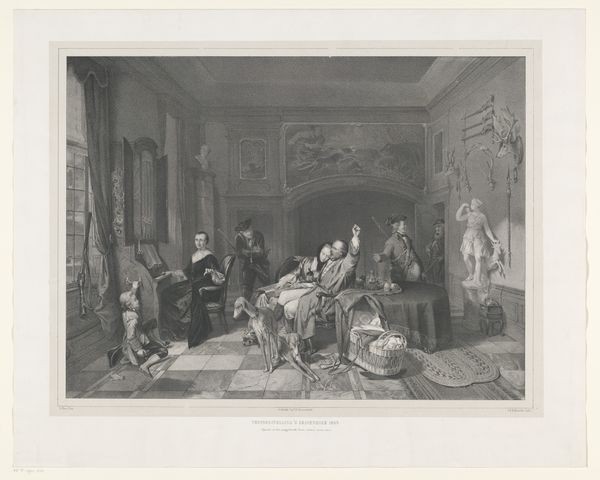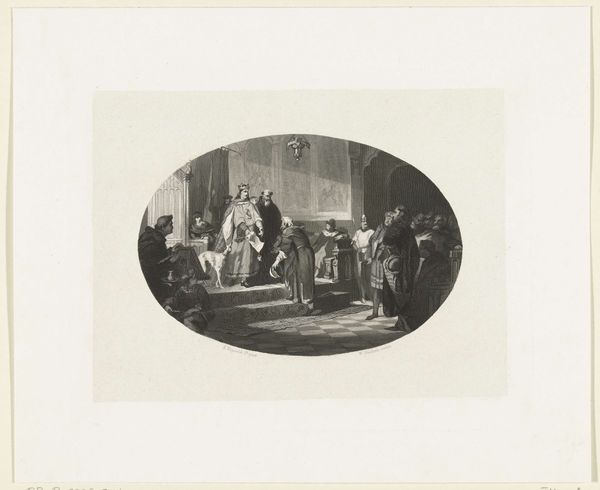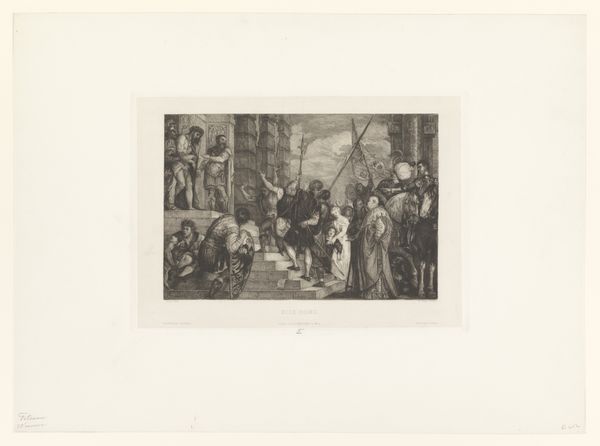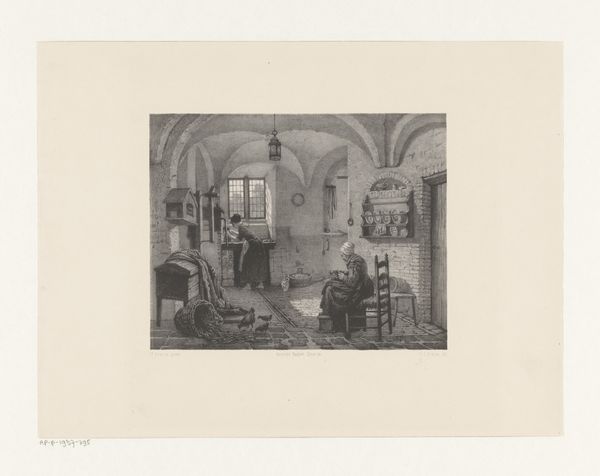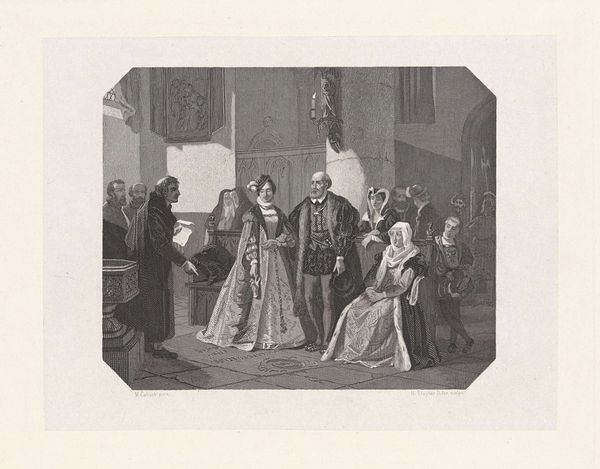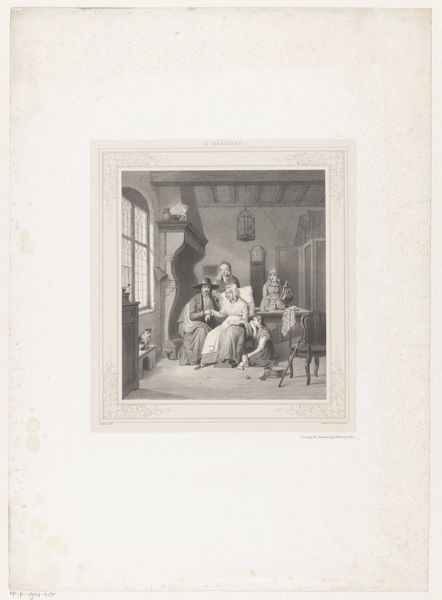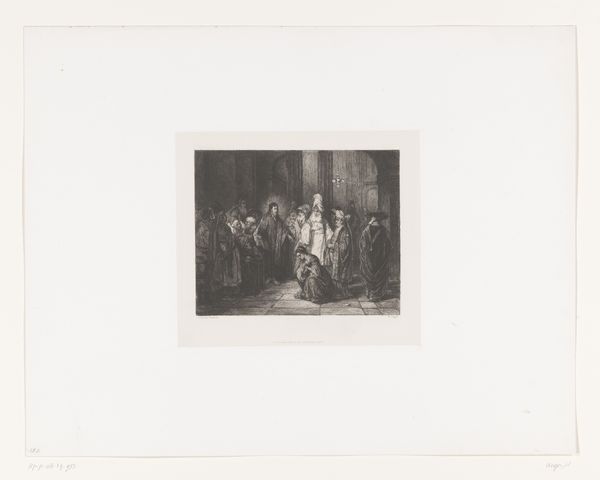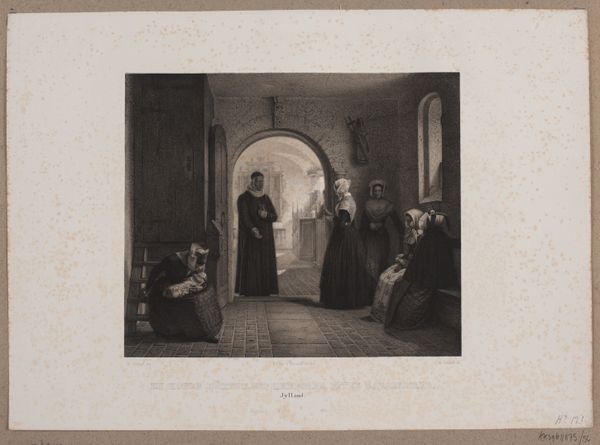
print, engraving
#
medieval
# print
#
genre-painting
#
history-painting
#
engraving
Dimensions: height 188 mm, width 240 mm
Copyright: Rijks Museum: Open Domain
Willem Steelink created this print, "De warme stove te Utrecht, 1366," using etching techniques. It is a monochrome piece; the subtle gradations achieved are key to its atmosphere. An etching begins with a metal plate, traditionally copper or zinc, coated with a waxy, acid-resistant substance. The artist then draws through this coating, exposing the metal beneath. When the plate is immersed in acid, the exposed lines are bitten, creating grooves. The depth of these grooves determines how much ink they will hold, and therefore the darkness of the lines in the final print. Looking closely, notice the cross-hatching and fine lines that define the forms in this scene. Steelink has used the etching process to create a sense of depth, and mood. It is a technique capable of capturing nuances and subtleties, demanding skill, precision, and a deep understanding of material behavior. This print invites us to appreciate the artistry embedded in what might seem like a simple, reproducible image, blurring the lines between industrial production, craft, and fine art.
Comments
No comments
Be the first to comment and join the conversation on the ultimate creative platform.
